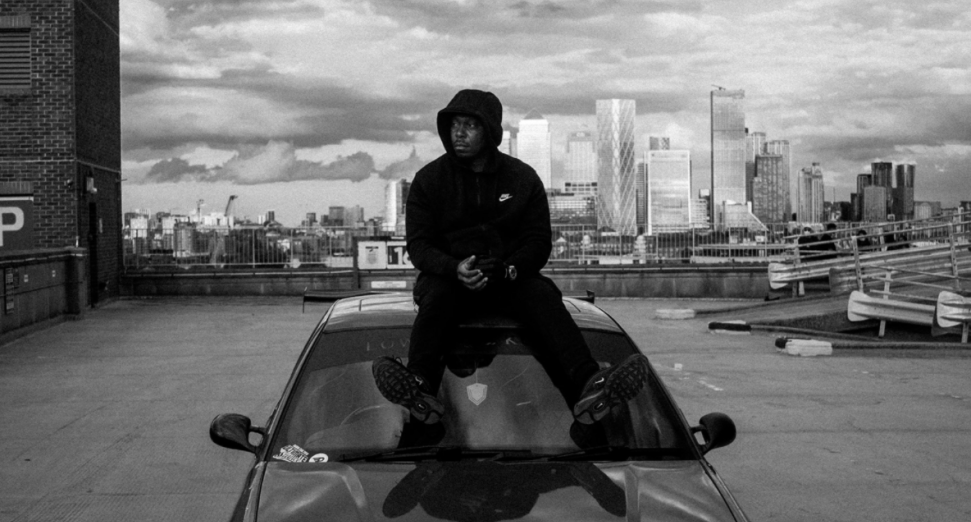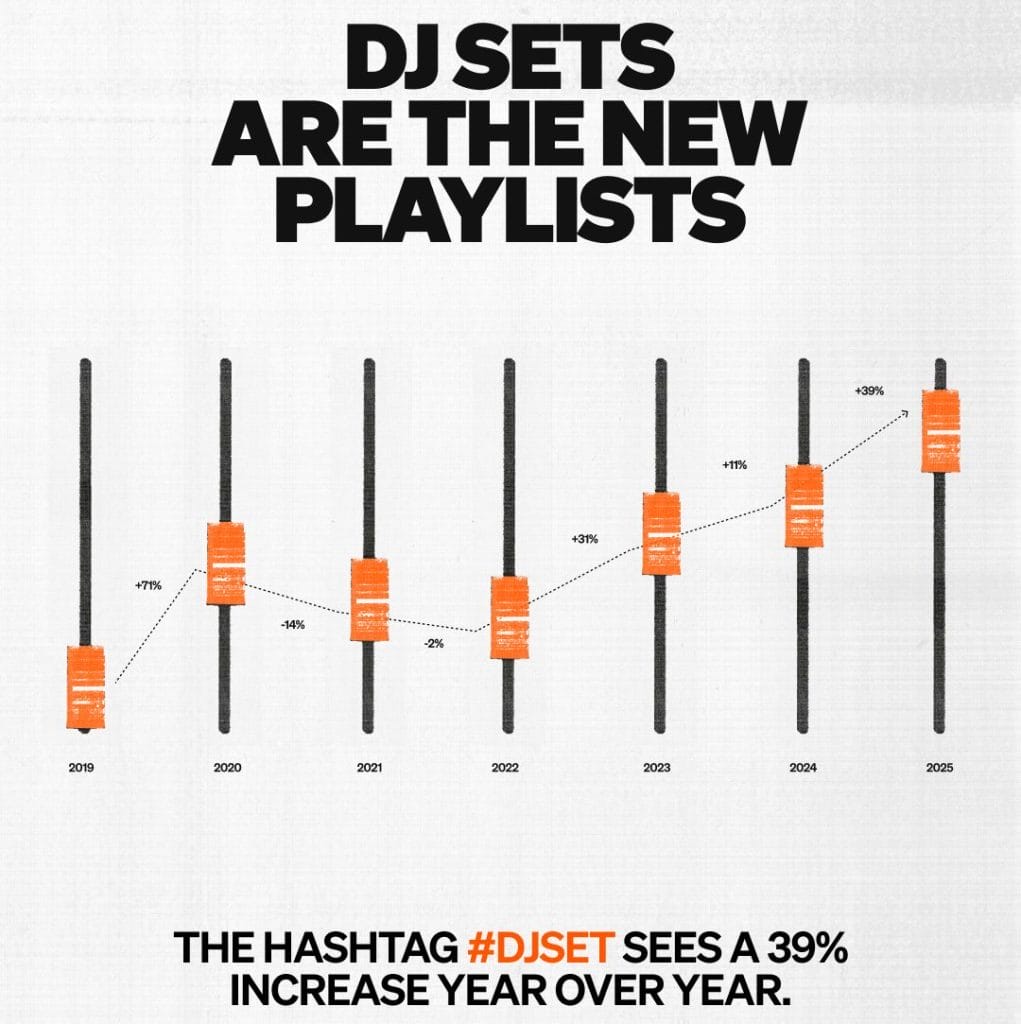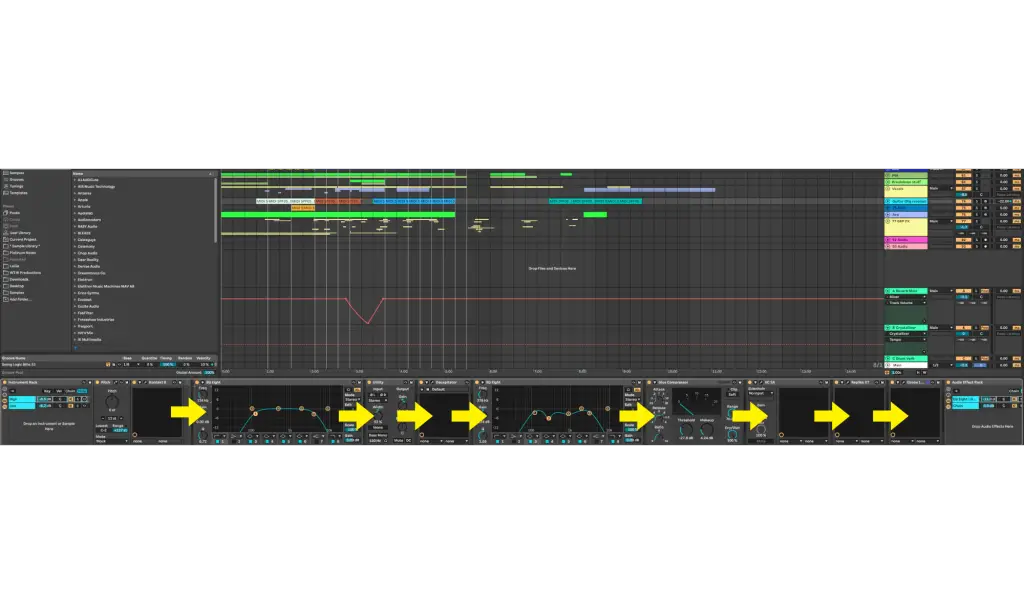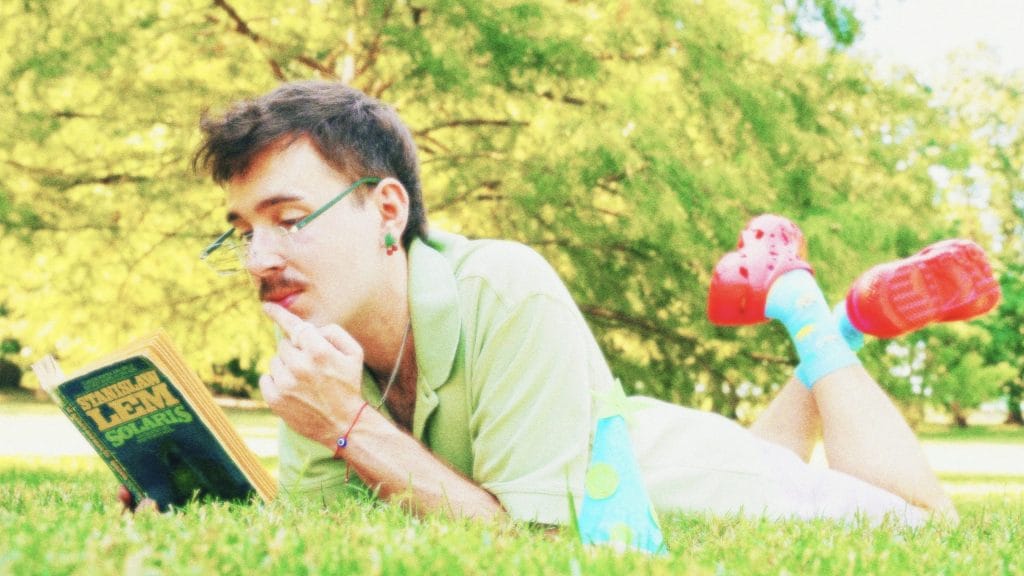
What Being a Musical Polymath Means to Bobo Gogo – And How You Can Become One, Too
The first thing we heard from Bobo Gogo was the following line: “Sick of the uniformity of pop right now? Me too.” We were sold on him after that.
The Kansas City-born “pop polymath”, as he describes himself, treats music like a science experiment: mixing styles, chasing ideas, and shapeshifting between aesthetics until something sticks in a new way. His debut single Wish On You came out last week and dives headfirst into the grit and glamour of electroclash and indie sleaze, channeling the energy of the late-2000s blog era through a modern pop lens.
But for Bobo, this is only chapter one. “I approach music like a chameleon,” he says, “shifting genres and perfecting sounds to bring overlooked and new vibes into the spotlight.” As he kicks off his project with “Wish On You”, Bobo sets the tone for an artistic journey defined by constant evolution, and a refusal to ever do the same thing twice. We wanted to learn more about his unique musical ethos. Take a listen to his debut track, and read on more to see why Bobo Gogo insists on constant change – and how you can do the same.
First, can you describe the term “musical polymath” and why you consider yourself one?
Polymaths are people who have a wide degree of knowledge, education, and interest. I view myself as one in the wider sense, but also when it comes to my music. Musical polymaths are folks who dive deeply into different musicological niches and often fall into varied rabbit holes all over the genre-verse. One day you’re listening to Nick Lowe’s entire discography and noting his approach to lyricism and storytelling, the next day you’re jamming to Barış Manço to better understand the evolution from a more traditional approach to Turkish music to a modern, radio-ready psychedelic rock/funk vibe. As a musician, I intentionally push myself to explore a wide range of genres, instruments, and histories — yes, I’m currently releasing indie electro, but I’m also practicing my banjo every day.
What’s the biggest misconception people have about being a “chameleon” artist?
When I tell people about the Bobo Gogo Master Plan — which involves a great degree of sound-shifting and blending as my career progresses — they think what I’m doing is incredibly unique or original! I’m the first to admit that it’s not! I think that in order to be an incredible artist and musician, you need to be a bit of a musical polymath and pop chameleon. The unfortunate side is that, currently, the algorithms that be and the industry perspective suggest artists need to stay within a consistent and curated sound, so many simply ignore the chameleon call they inherently feel in their hearts.
Lady Gaga’s foray into the Great American Songbook comes to mind as a commercially successful chameleon shift. I’d love to see more of this, and I hope that what I’m able to do with my career can free other artists to do the same! Maybe Charli XCX has a folk project she’s always wanted to create? Maybe Olivia Rodrigo wants to shift into a funk revival space? I think things like this are so much more viable than people realize!
How do you balance constant evolution with maintaining a recognizable musical identity?
If you think about what makes an artist unique, it’s so rarely the genre in which they exist or perform. Take Kenny G, for example — he has played saxophone on dozens and dozens of songs by other artists across all genres, but his approach to his instrument and musical expression is instantly recognizable. Those intangible artistic qualities can carry over to just about any sound.
As I think about myself as an artist in a wider sense, I know my approach to lyricism and songwriting is unique to me as a person. If I’m able to continue to sincerely express myself in the ways that feel authentic to me (which, ironically, I do in a seemingly insincere manner), then I know my fans will meet me wherever in the musical universe I happen to wander!
How do you build a palette for a song (such as “Wish On You”) when working across genres with such different textures and production styles?
My first EP (out early 2026!) is going to be in the indie-electro space. The kids were calling this sound “indie sleaze” recently, but I’ve just heard that it’s now “Obama Era Indie,” which I think is iconic! I actually try to avoid music that’s in the exact genre or sound I’m creating. Instead, whenever I start to think through approaches to a certain sound, I build up some foundational touchstones by thinking critically about what influenced the artists who were building up this sound and vibe when it was at its peak.
You’ll find a lot of early 2000s rock influences and references deep in the songs on this EP (my second single, out 11/7, is effectively a Hoobastank response track) since a lot of artists in this indie era were formed by these sounds, as well as late ’90s electronic music like Daft Punk, Goldfrapp, and many others. When I have that foundation, I can comfortably begin to feel the same creative urges and pulses those artists were feeling. I’m then able to artistically create authentic music within specific vibes. Instead of trying to simply emulate sounds, I emulate the soul of the music. (If that doesn’t induce an eye roll, then I don’t know what will!!)
How do you protect experimentation from turning into complete chaos? Do you have an internal filter for knowing when an idea “works,” or do you just go with the flow?
Many of my songs start very chaotic, and I embrace that as much as I can. My rule is that if I’m going in the wrong direction, I need to go further in that direction. I try my best to protect my creative process from any “rational” thoughts as much as possible — those can come later. I typically end up with an absolute mess, but my preference is to clean something up as opposed to struggle to create. Though I work uninhibited, I do understand that I need to make music for actual humans to listen to, so I cut back pretty heavily in the editing phase with my collaborators.
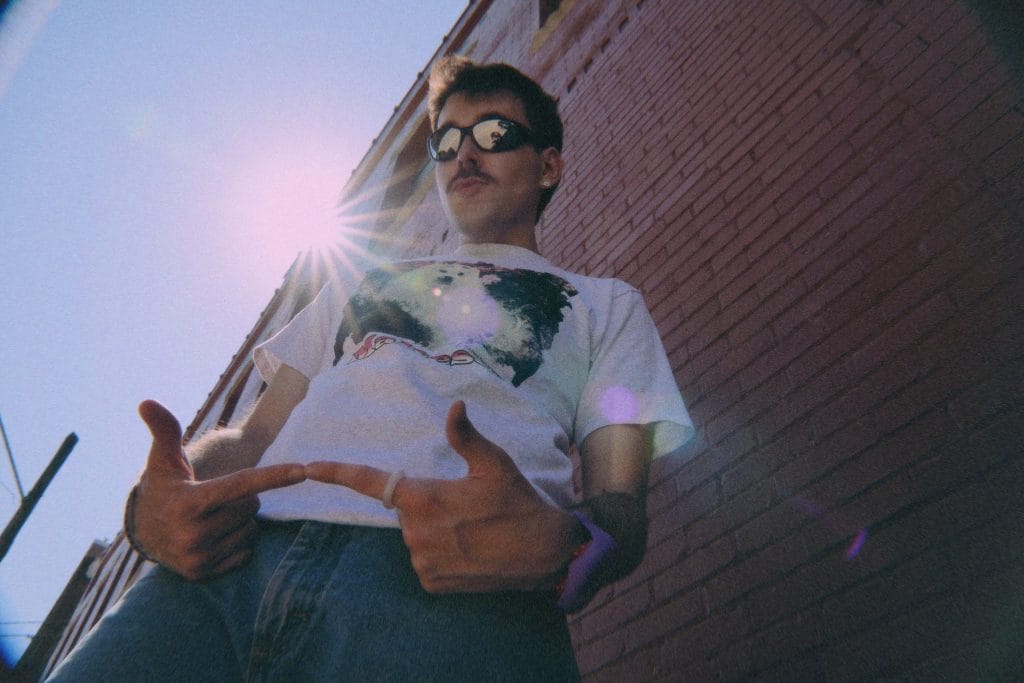
What’s a production or songwriting trick you’ve learned from working in one genre that you’ve successfully applied in a totally different one?
I’m not sure this is a trick, but I’ve been composing a musical for about eight months now, and I’ve found myself working with the organ a lot. It’s such an underutilized instrument nowadays, and my proclivity for it certainly comes from my improvisational jazz era (most of which will never see the light of day, thankfully). I’ve been incorporating it a lot recently into projects for my debut EP — there’s something about the timbre of it, as well as the musicological storytelling it can invoke in a listener, simply by being an organ.
What kind of sonic or conceptual territory do you want to explore next, beyond “Wish On You”?
My next few singles and my EP will remain in the Obama Era Indie vibe for sure. But after that… let’s just say we’re hopping into a time machine set to 1983!
Lastly, what’s one piece of advice you could give to up-and-coming producers who may be interested in being a polymath like you?
I struggled with this for such a long time, but I would say: throw out the “commercial” side of your brain when creating. The thoughts that creep in and say, “Oh, I can’t make this type of music because X,” or “This won’t work with my catalog because Y.” Once you’re able to free yourself from that and follow wherever your musical mind leads you, that’s when things start to get interesting and fulfilling.
Stream “Wish On You” here.

